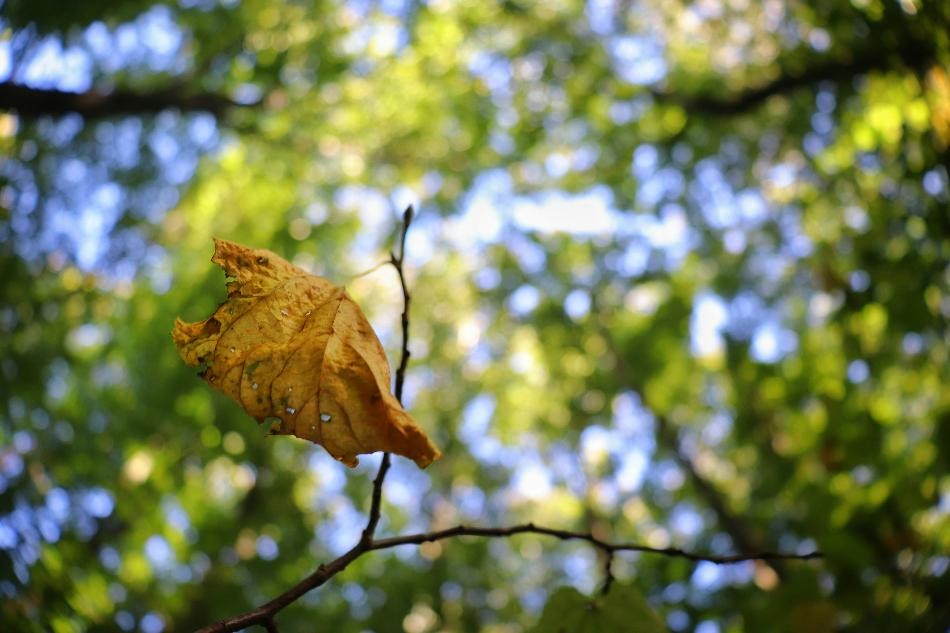Blog
Happy Autumn!?
- November 04, 2023
- Elijah Hawken

Happy autumn!
Hello and happy weird Dallas, Texas fall!
Who knew it would suddenly be winter and then warm again! Thankfully my confused plants seem to have survived it so far.
One important note for this season: don’t lose your FSA/HSA funds! There are less than two months to use them for this year – and remember that you can use them for acupuncture! Schedule an appointment for a seasonal tune up (get your qi ready for fall), a stress-relief session (as some holidays approach), or to treat any minor ailments (before they become major).
In the theory of acupuncture and Traditional Chinese Medicine, fall is associated with the Metal element, including the organ system of the Lung - which encompasses many things other than how the “lung” is defined in modern biomedicine (this is why one is written capitalized and one is lower-case). Some related aspects of this element are the skin, the nose, and the emotion of grief.
Not surprising, then, are some symptoms that often show up in this season like drier skin, allergies, sinus headaches and colds! Traditional Chinese Medicine can be very effective for treating allergies, headaches, and preventing colds, so if you tend to suffer from them, consider addressing them with acupuncture and a customized Chinese herbal formula. Earlier is better, for prevention!
As the trees wither and leaves fall, it is not surprising that we may be closer to any feelings of loss. Know that acupuncture can be very supportive in helping our emotions and moods move smoothly and appropriately – helping us respond well and keeping us from getting stuck in one feeling or mood.
Another aspect of the Metal element is the part of the system called the Po, which includes the ability to perform good self-care. Maybe part of your self-care this season is including acupuncture and Traditional Chinese Medicine?
To support your skin and overall health, make sure you are drinking plenty of water. Often when the weather changes from hot to cool, we tend to consume less water, so remember to be intentional about holding steady or increasing the amount we’re taking in.
You might also consider adding a breathing exercise into your routine this season. Acupuncture/Traditional Chinese Medicine has incorporated breath work in its system for thousands of years, and it is exciting to see Western biomedical thought and research starting to catch up with what ancient people knew all along! If you are not too congested, try to focus on breathing mainly through your nose throughout the day. One practice I like to recommend is the following:
This practice calls for filling your lungs about halfway. Unlike many breathing exercises, this one does not ask you to fill your lungs fully, using all the accessory breathing muscles, but just going to about halfway full. To do this exercise, inhale to a count of six full seconds (the time it takes to mentally count “one-one thousand” is about one second), filling the lungs about halfway, and then immediately exhale to a count of six full seconds. You don’t need to hold the breath at all – just let the out-breath come right after the in-breath, and vise versa. If your sinuses are clear, breathe in and out through your nose. If you are congested or cannot breathe freely through your nose, then it is fine to breathe through your mouth. Consider practicing this for 5 minutes twice per day for two weeks, and noting any differences you notice. Maybe you’re responding to stressors better. Maybe you fall asleep a little faster. Maybe you just have an increased sense of ease in your day, and you note yourself breathing more smoothly. Just observe and note your experience. If you want, you can increase your practice time up to 20 minutes twice per day - but remember - some is always better than none, so if you only can fit five minutes of practice into your day, you are still doing something wonderful for yourself!
I hope these suggestions help you move through this season feeling contented and well.
Wishing you all the best,
Elijah
Search
Recent Posts
-
Office Protocol in the time of COVID-19 May 07, 2020
-
What IS a Healthy Diet, Anyway? November 27, 2023
Categories
Book An Appointment
Contact Info
6510 Abrams Road
Suite 401
Dallas, Texas 75231
- (972) 804-9113
- Email Us
- Driving Directions
From The Blog
-
Office Protocol in the time of COVID-19 May 07, 2020
-
What IS a Healthy Diet, Anyway? November 27, 2023






